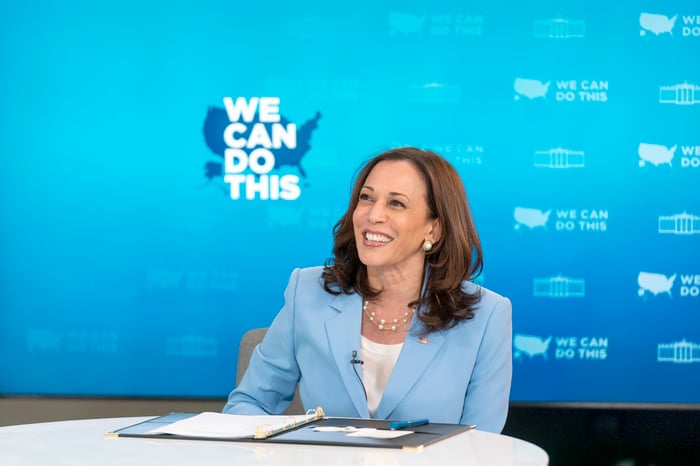
Kamala Harris. Official White House Photo by Lawrence Jackson.
Relevant Economic Policies Proposed by Harris
Since becoming the Democratic presidential nominee, Harris has introduced various economic policies, such as tax cuts for working Americans, targeting corporate price gouging, strengthening Obamacare, and addressing the U.S. housing shortage through incentives and tax credits.
Harris has also suggested raising the corporate tax rate from 21% to 28% and quadrupling the tax rate on corporate stock buybacks while offering new tax credits to support critical industries.
Potential Impact on Nvidia
Nvidia’s effective tax rate has been significantly lower than the proposed 28%, showcasing its ability to navigate tax codes effectively. While Harris’ tax policies on stock buybacks could prompt a shift in Nvidia’s capital allocation, it may not drastically impact the company’s operations.
Though tax credits for AI data centers and the semiconductor industry could benefit Nvidia, the exact implications remain uncertain without specific details on the policy.
Forecasting Nvidia’s Performance under Harris
While Nvidia’s stock may experience growth under a Harris administration, it’s unlikely to be solely attributed to her policies. The company’s success primarily hinges on the demand for its GPUs rather than governmental initiatives.
Nvidia’s ability to sustain strong market performance depends on multiple factors beyond political landscapes.
Investment Considerations
Before investing in Nvidia, investors should weigh various factors, including market trends, technological advancements, and company performance, rather than solely focusing on potential political outcomes.
Investors should conduct thorough research and consider diverse sources of information before making investment decisions.
Author has no position in any mentioned stocks. This article is for informative purposes only, and individuals should seek financial advice before investing.

